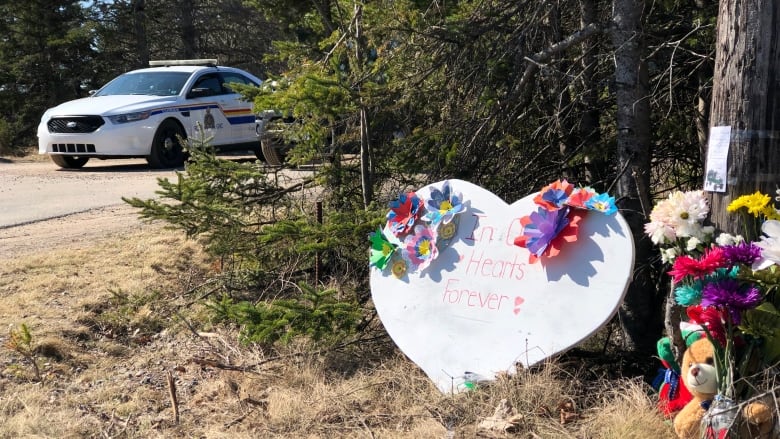
The good
KJIPUKTUK (Halifax) – “The good” arrived Tuesday, July 28th, 2020. Minister of Public Safety and Emergency Preparedness Bill Blair announced a federal-provincial inquiry into the worst mass shooting in Canadian history.
Prior to this announcement, he and Nova Scotia’s Minister of Justice Mark Furey had declared an independent review would be held—a review not wanted—that ‘no one’ asked for. For three months families grieving over the atrocious killing of family members rejected the announced review—they wanted a full and transparent public inquiry.
Not being politically heard the families took to public protesting. Supported by Nova Scotian feminists, women’s rights activists, Dalhousie University law professors, Canadian senators, Nova Scotian elected politicians, organizations and others wrote letters to Ministers Furey and Blair or swamped Minister Blair’s Ottawa office with messages calling for an inquiry. July 28th was when “the good” happened with Minister Blair’s announcement the inquiry would be held.
This transformed the July 29th planned peaceful protest by the families and supporters who gathered at the Halifax waterfront ferry terminal. Instead of protesting, families, followed by supporters, walked quietly to Province House and back to the waterfront. We respectfully listened, at a distance, as families shared their responses of having achieved their goal of demanding an inquiry with the press. Charlene Bagley said she hoped to “get answers…families need and that’s what I wanted.” Nick Beaton, whose pregnant wife Kristen was killed, reflected on the families’ win. He said, “It just proves the little man can have a voice…together we can conquer.”
The bad
“The bad” can be felt by thinking of the families whose lives are forever unjustly altered by the gunman. And respecting that on top of their grief were three months of fight, marches, and meeting the press to express demanding an inquiry into how this horrific mass shooting ordeal was handled by the Royal Canadian Mounted Police (RCMP).
However, the “bad” also began years before. Brenda Forbes, who had been a neighbor of the gunman, said that in 2013, seven years prior to the gunman’s April rampage, she had reported to the RCMP that the gunman was assaulting his female partner, had strangled her, and had illegal guns. Forbes also explained her efforts to warn community members that the killer was a violent and dangerous man had been dismissed.
Forbes became so fearful of the gunman when he began stalking her house, subsequently moving away from the gunman’s Portapique neighborhood, and eventually moving out of province to feel safe. The RCMP said they had no record of Brenda Forbes’ reports. “The bad” is: Did the RCMP dismiss the seriousness of Brenda’s reports?
The ugly
“The ugly” can be named misogyny—the hatred, objectification, and social inequality patriarchy places on female persons. Misogyny that nurtures male violence against women and girls and that can amount to assaults and torture and other evil behaviors such as this mass shooting.
“The ugly” is the misogyny this serial assaulter and gunman carried as he went raging through Nova Scotia communities for over 13 hours, killing 22 people—inflicting 13 femicides—the killing of female persons—and nine homicides—the killing of male persons.
According to RCMP and media reports the killer’s rampage began by assaulting and handcuffing his partner who escaped and hid in the woods overnight, before seeking help from a surviving neighbor and a 911 call was made. “The ugly” reality ignored was that this gunman, like most adult male mass shooters, displayed prior warning signs of being a dangerous man who had guns, was misogynistic, and perpetrated intimate partner violence.
The continuing necessity of a feminist analysis
Women 7 (W7) Ottawa, Canada · 2018
Maryam Monsef, Minister for Women and Gender Equality, in preparation for Canada’s 2018 hosting of the other G7 countries of France, Germany, Italy, Japan, the United Kingdom, and the United States, held the first-ever W7 feminist summit associated with the G7. Over 60 feminists from Canada, G7 countries, and places around the world met for two days. W7 pushed for G7 partners to ensure that a feminist analysis or lens was applied to G7 deliberations.
Ending violence against women was a key W7 recommendation. Calling for a feminist analysis in the mass shooting inquiry is politically correct and warranted. Furthermore, Minister Monsef would hear this W7 key recommendation repeated at the 2019 W7 summit chaired by France.
Women 7 (W7) Paris, France · 2019
By invitation, we Self-funded and joined more than 400 global feminist activists for the international W7 summit in Paris, France, held May 9-10, 2019. Like Canada’s W7, violence against women and girls was movingly debated and a key recommendation delivered to G7 country representatives.
Because of our 27 years supporting Canadian women who, as children or adults, survived torture perpetrated within family and intimate partner relationships, we went to the W7 prepared with our educational handout, Will W7 be legislatively bold? That’s our question! Handing it to one young woman, she said, “We know torture. It happens all the time in my country.”
The Paris W7 summit closed with a meeting between Women 7 and G7 Ministers for Gender Equality and Women’s Rights. Women 7 took turns standing to deliver to the Ministers their Recommendations.
Passionately speaking about their lived realities, they created personal backdrops as they spoke of the dire need for governments to advance systemic integration of women’s and girls’ human rights equality in the upcoming 2019 Paris G7 meeting. They urged governments to address women and girls never-ending struggle against the ugliness of patriarchal misogynistic domination, oppression, and violence. As in Canada, ending violence against women and girls was a key recommendation that Minister Monsef was present to hear, as this photo shows, and that she had heard at Canada’s 2018 W7 summit she facilitated.

The silence of the politicians
Why then is “a feminist analysis” not specifically written into the federal-provincial mass shooting inquiry mandate? When Minister Monsef was asked to support integrating a feminist analysis into the mass shooting inquiry, why did her office respond by stating this was “outside…[her] mandate”?
Why has Nova Scotia Minister for the Status of Women, Kelly Regan, not responded to emails sent to her from Nova Scotia feminists requesting a meeting to discuss the inclusion of a feminist analysis in the mass shooting inquiry? What happened to Canada’s W7 and G7 political responsibilities of ending violence against women and girls?
A feminist analysis in the Nova Scotia mass killing inquiry includes promoting prevention opportunities to deconstruct the social and cultural patriarchal misogyny that nurtures’ male violence against women and girls. Feminists have spoken of the need to include a feminist analysis in the inquiry, noting the importance that femicides and homicides have ties to domestic violence. Prevention awareness therefore comes by naming the killing of women as femicide and making the links that mass shootings are frequently preceded by relational assaults predominately by white men against their female partners. Educational interventions beginning with children and knowledge of red flag warnings of femicidal risks relating to male violence against women and girls can help prevent such violence spilling over and harming other adults or children.
The calls for a feminist analysis from coast-to-coast-to-coast
Calling for a feminist analysis in the mass shooting inquiry is politically correct and warranted. From coast-to-coast-to-coast, from grassroots, from feminists on the ground, from those with positions of power, from women and from men, come these closing statements.
First, from Nova Scotia:
Jackie Stevens, Avalon Centre: “[W]e can’t accept anything less than acknowledgement of the patriarchal roots of violence, and total commitment to dismantling these systems of oppression by bringing a feminist lens to a full public inquiry.”
Emily Stewart, Third Place: “Without a feminist analysis…the meaningful progress needed to make women and girls safer in our communities will likely be lost.”
Lenore Zann, MP: “The more that the public can realize that private violence can lead to public violence…the quicker we can do something about this.”
Michaela MacLachlan, The Lotus Centre: “[I]t’s imperative to identify the root issue of misogyny…to work towards the prevention of ongoing male violence against women.”
Sarah Flemming, Colchester Sexual Assault Centre: “By implementing a feminist lens to support the inquiry we can glean information to change laws to protect the most vulnerable.”
The Town of Truro Council and the Truro Police Board wrote to Minister Furey: “By examining misogyny as a root issue…the inquiry will bring…knowledge about how to reduce misogyny within our provincial culture, how to reduce and prevent male violence against women, and how to prevent femicide and mass shootings.”
From PEI:
Jillian Kilfoil, Women’s Network: “If we do not apply a feminist lens to this process, we will not get to the root causes of this violence, misogyny.”
From NL:
Jenny Wright, women’s rights activist, counsellor, educator, advisor with Canadian Femicide Observatory: “An inquiry must primarily address the violent misogyny that was the root cause of this preventable tragedy…As Canadians we can no longer accept the levels of femicide…embedded in…our society.”
From Ontario:
Megan Walker, The London Abused Women’s Centre: “A feminist analysis provides a lens into the systemic and structural inequalities that leaves women and girls vulnerable to male violence.”
Barry Parkinson, a private person, he writes: “In some ways, the violence in Nova Scotia is this generation’s École Polytechnique, both in terms of the nature of the violence and…how we can salvage something by confronting some of the underlying themes.”
Patricia Freeman Marshall, Order of Ontario: “Daily across Canada women and girls are tortured, trafficked and abused…No place in Canada is yet truly safe for women and children.”
From Alberta:
Eleanor Cowan, writer and feminist activist: “Let a feminist lens inquiry of the NS massacre honour the burial grounds of thousands of murdered Canadian women and girls in every province in Canada.”
From BC:
Hilla Kerner, Vancouver Rape Relief: “[T]he killer who executed the Nova Scotia mass-shooting was a man…[and] crucial in understanding this case, and the countless other cases, of men’s deadly violence against women and children.”
From Canada’s North:
Arlene Hache, activist, Order of Canada recipient: “[F]emicide and mass murders…are predictable and preventable, but continue unabated because the voices of women with lived expertise are excluded from the conversation and decision-making process“.
From the global:
The petition: End Femicide and Misogyny in Nova Scotia. An Inquiry Now holds the supportive voices of over 8000 individuals.

Jeanne Sarson, MEd, BScN and
Linda MacDonald, MEd, BN
Co-founders Persons Against Non-State Torture (NST)
Human Rights Defenders
361 Prince Street, Truro, NS, Canada B2N 1E4
P: 1.902.895.6659 | C: 1.902.956.2117 | twin2@eastlink.ca
www.nonstatetorture.org
contact@nonstatetorture.org
With a special thanks to our generous donors who make publication of the Nova Scotia Advocate possible.
Subscribe to the Nova Scotia Advocate weekly digest and never miss an article again. It’s free!




Silence is permission. We must not cower in the face of misogyny, for like an open wound, it festers and gnaws deeper and worse. Thank you, Jeanne and Linda for this comprehensive article! Has our Minister for Women’s Rights , M. Monsef, yet taken a stand?